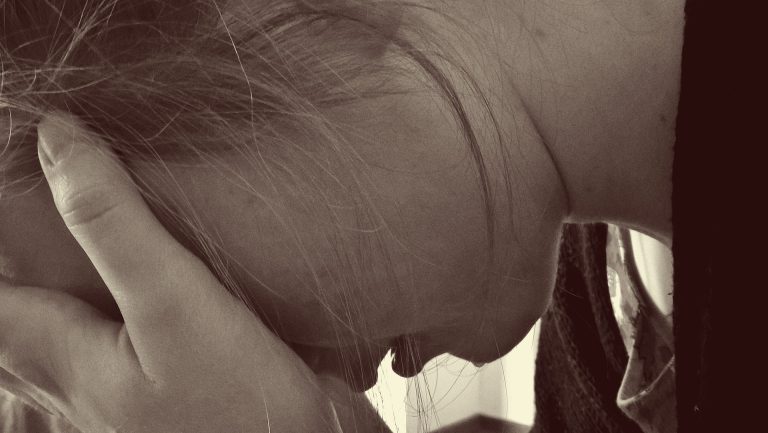by Liz Carey
THE Rural Mental Health Resource Center of Mental Health America was launched last spring. The website provides rural residents with resources to help them overcome barriers to accessing mental health care, said officials with the national mental health awareness nonprofit.
These resources include free mental health screenings that residents can complete from home or over the phone, wrote America Paredes, MHA’s social impact manager, in an email interview with the Daily Yonder.
The tests guide people through a series of questions to assess the likelihood that they have a mental health problem such as depression, anxiety, ADHD or bipolar disorder. Once people take the assessments, the site also guides them toward finding help.
“Based on an individual’s screening results, they have access to a self-guided platform that helps them navigate their mental health journey based on their experience and where they are in their journey ” said Paredes.
Those who are beginning to try to learn about mental health issues can use an overview section called Mental Health 101, while people who have already begun to explore interventions can learn about therapy and find support. ‘help.
The site also serves as a resource center for rural communities looking to serve residents who may be experiencing mental health issues.
“We hope that individuals feel comfortable accessing the free and anonymous screening tools, which can help remove some of the fear and stigma associated with mental health experiences,” Paredes wrote. “We hope this center will be a first step for people who may feel alone in their experience and for organizations looking to support these communities by providing free resources.” »
About 7.7 million rural adults, or about a quarter (23%) of all non-metropolitan adults in the United States, reported having a mental illness in 2022, according to the Substance Abuse and Mental Health Services AdministrationAdditionally, about 1.6 million, or nearly 5 percent, of nonmetropolitan adults reported having serious suicidal thoughts that year.
In rural communities, the suicide rate is between 18.3 and 20.5 per 100,000 inhabitants. In comparison, large urban communities experience a rate between 10.9 and 12.5 suicides per 100,000 residents. Studies suggest that lack of access to mental and behavioral health care, social isolation, and socioeconomic disparities contribute to higher suicide rates.
These statistics, along with MHA’s own research, led to the hub’s release.
“Based on research and our own data from the National Prevention and Screening ProgramWe knew it was important to address the barriers that can hinder access to resources and information in rural communities, including the fact that people may not know where to find information, community and free resources that could help them start addressing their mental health,” Paredes wrote.
MHA’s annual report, The State of Mental Health in America, ranks all 50 states and the District of Columbia based on mental health metrics. That report has led some of its affiliates to expand their rural reach based on the needs of their community, she said.
In South Carolina, Joy Jay, executive director of MHA-SC, said outreach included the use of more than 50 mobile mental health clinics set up in RVs. Staffed by a nurse, peer support specialist and mental health professional, each mobile clinic can provide regular support to residents or crisis support.
Once a week, the specially equipped campervans travel to areas that do not always have access to mental health services. They offer 15-20 minute visits with a trained professional.
“What we found was that the best place to put them was in the parking lots of Family Dollar and Dollar General stores,” Jay said in an interview with Daily Yonder. “This is where people go and meet. This is where we needed to be.
The acceptance of telehealth has helped others in rural areas access help they might not have had access to otherwise, Jay said.
“I never thought this would happen,” Jay said. “But it really worked, especially in rural emergency rooms…It really helped because it’s like no man’s land in some of these counties.”
According to the South Carolina Department of Health and Environmental Control, rural communities are losing health care providers. Between 2009 and 2019, the number of psychiatrists in rural South Carolina decreased by a third. annual state report on health issues find. In 14 of the state’s 46 counties, there are no licensed psychiatrists or psychologists, and nine others had only one licensed mental health professional, the South Carolina Health Occupations Data Book watch.
Jay estimated there were nearly 100,000 telehealth visits for mental health issues last year and the system has more than 280,000 clients.
From his perspective, the system helps families get the help they need.
“We’ll have parents getting help for their kids and saying, ‘We knew something was wrong, but we didn’t know how to get them help,’” she said .
Jay acknowledges, however, that there is a lot of work to be done. The system, she said, still isn’t great, but it’s getting better.
“I think we’re getting somewhere though,” she said. “I couldn’t go on if I didn’t think we were.”


